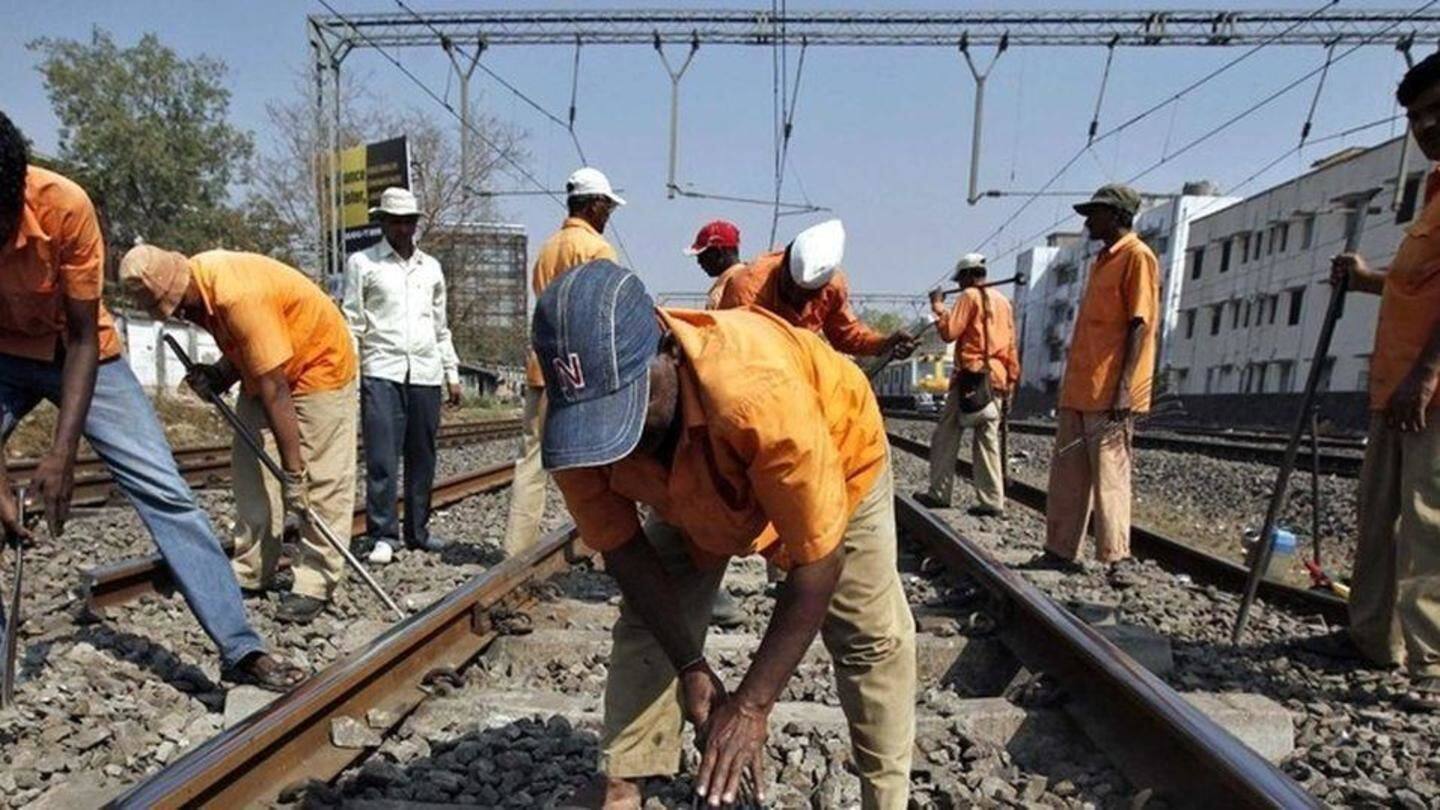
Railways' biggest recruitment-drive to cost Rs. 300cr, take a year
What's the story
The Railways has received a whopping 2.5cr applications for its biggest recruitment drive for 90,000 lower-level posts: 47.5L applications for 26,500 Automotive Loco Pilot positions, and 1.89cr for 62,907 Group-D positions (track maintainer, pointsman, switchman, helper, porter).
The selection process will be a "logistical challenge," said Railway Board Chairman Ashwani Lohani, but assured their staff is prepared.
Here's what the months-long drive will consist.
Screening
First task: The need to screen for "non-serious" candidates
The first task for the Railways is to segregate the "serious" and "non-serious" candidates.
This drive has attracted crores as they are government jobs with low qualification conditions; for most vacancies, candidates need to have passed Class-10.
But many apply solely to get free tickets to-and-from the exam venue city so they can tour new places.
Then there are those who plan to cheat.
Step-1
Weeding out fraud candidates with machine and manually
To discourage frauds, Railways mandated a refundable application fee of Rs. 100. Of the 3cr who started the application process, only 2.5cr completed it.
Now these applications would undergo a filtering machine that removes those where the applicant's photo is of a non-human entity - an animal or a building.
But it can't screen further for fake photographs of people, so manual sorting follows.
Step-2
Second task: Setting question papers with several unique sets
The next step is setting the question paper. Candidates are tested in English, math, science, reasoning, and current affairs.
Questions are prepared in English, translated into 15 Indian languages, and issued to candidates through their test computers.
Every student in a classroom receives a different set of questions.
One key job is to check incidents of paper leaks, or more commonly, fake paper leaks.
Step-3
Third task: Declaring results and resolving queries
After the exam comes result declaration. Candidates have to be analyzed according to quotas and lists prepared separately.
There's more: next follows a chance for candidates to raise objections. Candidates can flag 'wrong' questions or their 'right' answers that have been marked wrong.
"95% of time we are right," Lohani said, but added that 7,200 questions are prepared, so the chance for error remains.
Next
Candidates will have to clear a three-stage selection process
The online exam is only the first of three stages; roughly 1.35cr students will be shortlisted for the second round, or fifteen times the number of positions available.
Those who clear it will move ahead to a "psychological assessment" to test their aptitude, including alertness and depth perception, required for specific jobs.
Rs. 300cr has been allocated for the entire process for now.